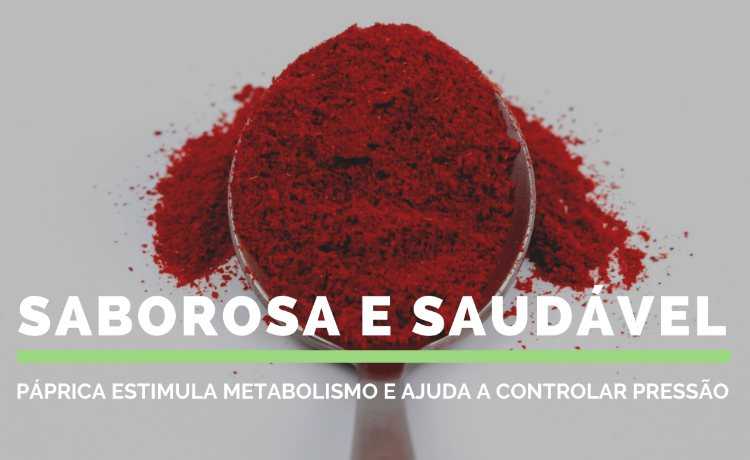What is paprika, what is it for and its benefits
Sweet paprika, spicy paprika and smoked paprika are versions of chili powder that add flavor and nutrients to dishes.

Paprika is a red powder made from peppers and peppers widely used in Brazil and Iberian countries as a seasoning. It has nutrients and can be added to sauteed dishes such as vegetables (beans, lentils, chickpeas), vegetables (broccoli, carrots, potatoes) and soups, and is found in sweet, smoked and spicy versions.
In industry, paprika is added to smoked meats and sausages to add color and that distinctive flavor that people mistakenly believe is meat!
- Scientifically Proven Chickpea Benefits
Peppers and bell peppers are fruits (yes, they are fruits!) cultivars of the species Capsicum annuum. The spiciest ones are rich in a substance called capsaicin. This substance stimulates the body's metabolism, helping to burn calories and is a known circulatory stimulant, aiding the body's detoxification. Capsaicin also helps control blood pressure and reduces triglyceride levels.
- How To Improve Blood Circulation With Eight Tips
- High blood pressure: symptoms, causes and treatment
- Low blood pressure: symptoms, causes and treatments

Edited and resized image by Zahrin Lukman is available on Unsplash
It helps to dissolve fibrin - a substance that promotes the formation of clots - and, when added to meals, fights stomach pain, cramps and gas. If you have constant sore throats, spicy paprika (which contains more capsaicin) is also a good home remedy to treat it.
In the Persian Gulf, a widely used aromatic spice called baharath, has paprika as one of its main ingredients. Paprika is also widely used in Turkish, Arabic and Berber cuisine. But it is in Hungary and Spain where the production of smoked paprika is of better quality. It is also an essential ingredient in the mixture found in Syrian pepper.
- 18 Sore Throat Remedy Options
- Oregano: six proven benefits
Properties and benefits

Edited and resized image by Silvia Agrasar is available on Unsplash
As a type of pepper, the pepper from which paprika is made is rich in vitamin C, a powerful antioxidant for wound healing, collagen formation and immunity maintenance. It is also rich in vitamin B6, K1, A, potassium and copper. These nutrients have important functions in the body, being able to improve metabolism, clot the blood, keep neurons healthy, good for the eyes and reduce the risk of heart disease, respectively.
- Foods rich in vitamin C
- What is vitamin C and why is it important?
- Cinnamon: benefits and how to make cinnamon tea
However, since paprika is only consumed in very small amounts, its contribution to daily intake is very small.










